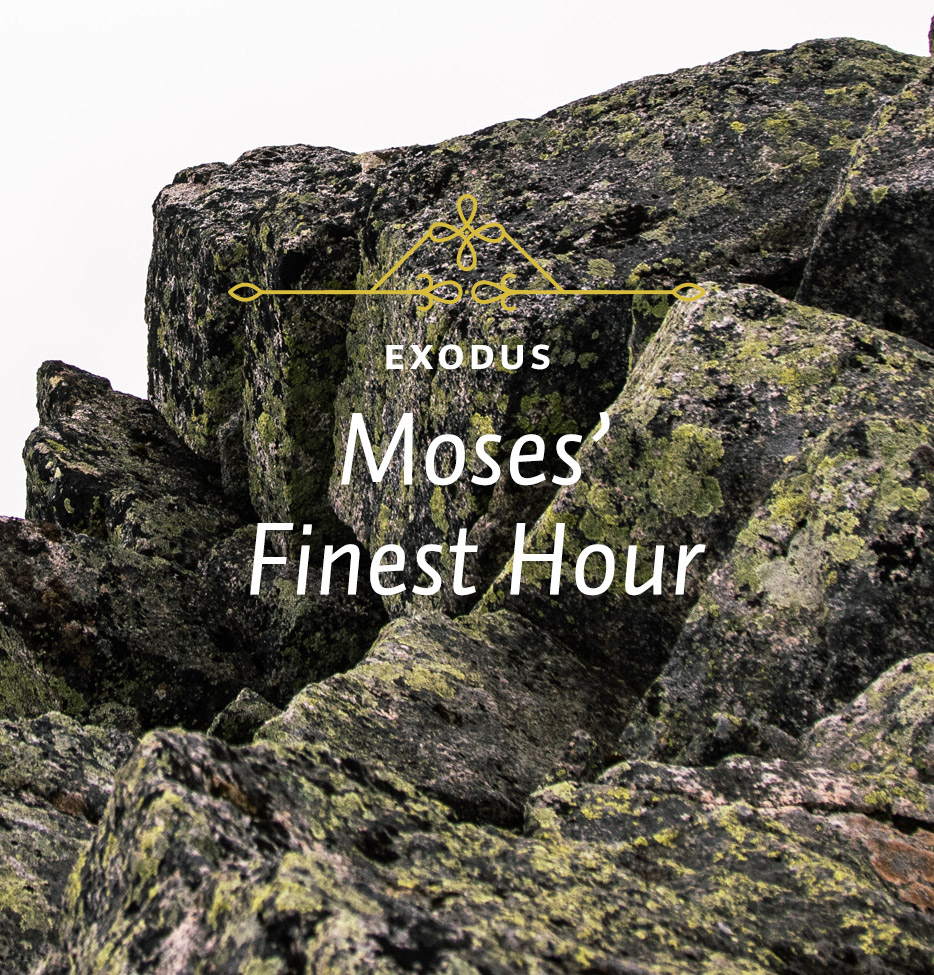Third, he called those who had remained faithful to God, and he commissioned them to execute a limited judgment on the people. He asked who was on the Lord’s side, and the tribe of Levi came forward. Then he told the tribe of Levi to take their swords and kill. It doesn’t say it in so many words, but he must have meant for them to kill the leaders. There were probably several million people, and they didn’t kill that many. What is stressed is that they were to execute judgment even on those who were members of their family, their friends, and their neighbors. And the Levites did it. They showed that they were faithful to God.
We are told that three thousand people were killed that day—that’s about one-half of one percent of the 600,000 men who had gone out. Proportionally, that wasn’t a large number, but it is a lot of people to kill. And the tribe of Levi did it, even when it affected members of their own household. They were men of integrity.
We remember this integrity in connection with what Jesus said about the gospel and what it means to follow Him. He said “Anyone who loves his father or mother more than me is not worthy of me. And anyone who loves his son or daughter more than me is not worthy of me” (Matt. 10:37). Both Jesus and Moses were saying that in the service of God all other loyalties have to be laid aside. If you are going to serve the God of the universe, you have to serve Him above all.
From a human point of view, Moses had dealt with the sin. He had done everything he could. He had reclaimed the loyalty of the people. But the problem was that God still remained in wrath upon the mountain. For armchair theologians who are reflecting on the story today and are thinking about the attributes of God, the wrath of God might not seem like a very serious thing. After all, some say that wrath is an outmoded concept, and that people don’t want to believe in the wrath of God today. But it wasn’t an outmoded concept to Moses! He had been on the mountain. He knew the terror of the holy God of Israel. He heard God say that he would “visit iniquity upon the children of the fathers unto the third and fourth generation of them that hate me.” The judgment of God was not something to be taken lightly. What in the world was Moses going to do? He’d done everything he could do humanly, but he still had to go up the mountain and face God.
The night passed, and the morning came on which he was to ascend the mountain. But during the night Moses had remembered that when the people were leaving Egypt, God had told them that they could take an animal and kill it, and they could put the blood upon the doorpost and the lintel of the house, thereby demonstrating that an innocent victim had died in the place of the guilty people who lived within. And when angel of death came to the land that night, the angel would pass by. God had also given Moses instructions for the Day of Atonement. On that day, the high priest was to take an animal and kill it for the sins of the people and sprinkle the blood upon the mercy seat. Mercy could be found if an atonement was made. Moses must have thought about that, and the next day, when he went up the mountain, he must have been saying to himself, “Maybe, maybe, God will accept…”
He reached the top, and he began to speak to God. The Hebrew text is uneven, and you may notice it in your Bible. Verse 32 breaks off with a dash, indicating that Moses is speaking at this point with great emotion. “So Moses went back to the LORD and said, ‘Oh, what a great sin these people have committed. They have made themselves gods of gold. But now, please forgive their sin–’” (vv. 31-32). That’s where it breaks off. He didn’t have any idea how God, the holy God of the universe, can simply forgive their sin just like that, willy-nilly. The holy God of the universe, the just God of the universe, has to do the right thing. Then Moses continued, “but if not, then blot me out of the book you have written” (v. 32).
Moses’ reference to this book could mean one of two things. It could be to the book of eternal life that’s mentioned in Revelation in several places. If that’s what he is referring to, what he means is that he is willing to be sent to hell if that will mean the salvation of the people. To some scholars that sounds extreme, so they suggest that the book could be a book of the living, a record of all the living souls in the nation. The only problem with that theory is that a book like that isn’t mentioned anywhere, and really doesn’t do justice to the story. God was going to blot out the people. That’s not just a temporal judgment; that’s a spiritual judgment. And when Moses is offering himself as a substitute, it’s not just a temporal substitute, either. He is offering himself as a spiritual substitute, and he is saying that he is willing to go to hell if it could mean the salvation of these people.






